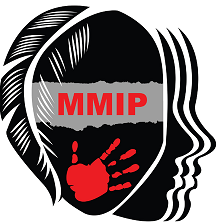Council Dispatch #135 January 6, 2023 Quarterly Meeting
Tribal Elders
- Stephen Smallsalmon talked about Nkwusm and the need for a fence and the basement to be fixed, the importance of knowing our language or Indian ways, the need to have a place for the people at the Long House and The People’s Center, the Tribes getting the white buffalo back, the elders should always be respected, the elders group, the road from St. Ignatius to Ronan, stories of the past, the people we have lost, and he thanked council for the $600 elders payment.
- Jerry Nicolai discussed his concerns about the executive board and their compensation, recalling the tribal council members if the executive board makes all the decisions, the funeral policy, and the Salazar settlement funds.
- Nancy Brown talked about her concerns regarding tribal sovereignty, the need to have a plan in order to help unborn babies when the mother is on drugs, the need to put up gates at the entrances of our land and have our checkpoints checking why they are coming here and check their vehicles for drugs, retrocession, and having an FBI presence here.
- Laurence Kenmille commented on Lake County wanting to rescind the retrocession agreement and fighting the Tribes when they were negotiating to take back their law and order, the Lake County Commissioners always being against us, elders needing to be at least 65 years of age to receive the annual elders payment, and he announced the incentive payment will be disbursed on January 20, 2023.
Tribal Council
- Tribal Council Members gave an update on the past quarter’s activities.
- Council acknowledged the following employees that have recently retired: Philip Paul (09/13/2022), Calvin Tanner (11/12/2022), Florence Gehring (10/17/2022), and Lester Clairmont (12/8/2022).
- Council acknowledged the following employees that have 40 or more years of tribal government service: Peggy Haggard, James Finley, Darwin Parker, George McLeod, Curtis Acevedo, Charlene Petet, Ken Clairmont, Mary Billedeaux, Cheryl Morigeau, George Ducharme, John Currie, Carole Lankford, Kim Azure, Rose Pierre, David Morigeau, Jeanne Christopher, Carla Tanner, Kermit Clary, Lester Clairmont, Eva Anderson, Patricia Clairmont, James Auld, John Wheeler, Kathleen Smith, Roberta Decker, Dorothy Frost, Geraldine Linsebigler, and Tom McDonald, and Bev Hill.
- Council honored Lester Clairmont. Craige Couture spoke about Lester’s career. Les was sworn in as a police officer in 1978 and has been a big part of the success of Law & Order. Two of our judges and the sheriff of Lake County were hired and mentored by Les.
- Council honored Bob McCrea. Ron Swaney spoke about Bob’s career. McCrea worked for the Tribes over 50 years. He was a hotshot and a smokejumper in his rooky season, and nobody else in the world has ever done that before. He is dedicated to his job and is a strong leader. Tony Incashola, Jr. stated Bob built their program. Bob always talked about safety and made sure everyone came home safely. He coordinated the program and built relationships for us nationally. We are able to do what we do because of the relationships Bob built. Bob showed the staff how to be a leader. Tony has learned a lot from Bob. Chairman McDonald stated Bob influenced him to become a smokejumper and was a role model for him.
- Council honored Flo Gehring. Ron Swaney spoke about Flo’s career. She worked for Forestry & the Division of Fire for 40+ years. Flo always came to work with a smile and did her job without being told to do it. Flo was an excellent employee and she was always helpful and professional. Chairman McDonald commented that Flo was a good role model for customer service.
- Council honored Calvin Tanner. Calvin had a long career with the Tribes and Chairman McDonald worked with Calvin many times. Calvin was able to grab and throw a 40-foot log from a backhoe. He went into private business. Calvin has always been a hard worker that people could learn from. Calvin was unable to be here today, so Alyssa Kelly accepted the gift on his behalf. Alyssa was glad the Tribes recognized her uncle for his strong work ethic.
- Council honored SK Rossi and Kylie Gursky. SK & Kylie were acknowledged for their pay-it-forward gift to the CSKT. Shane Morigeau went to law school with SK Rossi. The more Shane worked with SK in Helena, he learned they are both very special people. They sold their home in Missoula and made a profit. They benefited off our Indian lands while living in the community and wanted to give back for the wrongdoings in the history of the Tribes.
- Chairman McDonald reminded the audience that flu shots, booster shots, shingle shots, and Food Sovereignty food distribution boxes are available in the lobby today.
Food Sovereignty Program
- Jordan Thompson announced there are some food distribution boxes and $25 gift cards available to the membership today. The distributions will occur on January 10 in Dixon (morning) and St. Ignatius (afternoon), January 11 in Polson, and January 12 in Pablo.
Tribal Executive Office/Legal Department
- Jordan Thompson and Lynsey Gaudioso gave an overview on the history of Public Law 280, which is a termination era law passed in 1953 that gave jurisdiction on reservations to states. In 2016, the Lake County Commissioners passed a resolution of intent to withdraw from PL 280. In the 2017 Montana legislative session legislation was introduced to reimburse Lake County for PL 280 costs or that the county would seek full PL 280 retrocession. This bill failed. CSKT introduced its own bill that would allow the Tribes to initiate PL 280 retrocession, which was passed in the Montana State legislature and signed by Governor Bullock on May 19, 2017. This law permits the Tribes to withdraw consent to be subject to the criminal jurisdiction of the state of Montana. Representative Read introduced HB 656 during the 2021 legislative session. In July 2022, Lake County filed a lawsuit against the state for law enforcement services due to the implementation of PL 280 and damages for past costs. On December 12, 2023, Lake County passed a resolution of intent to withdraw from PL 280, and then the county passed a final resolution to withdraw from PL 280 on January 3, 2023, to be effective May 26, 2023, unless vacated prior to that date. Jordan and Lynsey answered questions from the audience.
Tribal Executive Office/Energy Keepers, Inc./Mission Valley Power
- Rick Eneas, Brian Lipscomb, and Teresa Wall-McDonald gave an update on the Mission Valley Power rate increase. Although there was an increase in electricity rates, Mission Valley Power still has one of the lowest rates in the region. It is a breakeven utility and is not for profit. A subsidy was provided to all customers. The discussion whether to continue that subsidy has been discussed by the Tribal Council each year since the Tribes took over the dam. The subsidy was coming from EKI, which is a for profit company. The increase in revenue for this year to sell the power at wholesale market rates that was not subsidized to MVP would generate $4 million per year. EKI is on track to meet or exceed that amount of revenue. It would cost the Tribes nearly 20M+ to continue that subsidy. When the council gave their blessing on making the change it was not a blanket decision; EKI was asked to specifically track additional income that was generated from the power that had previously been supplied and was at the heart of the subsidy and all that income is specifically dedicated to coming back to the Tribes, and at this point there are a handful of initiatives the council plans to use it for that are focused on helping our elder population. The Tribal Council wants to provide energy assistance to all tribal elders aged 60+ and there is not a specific amount set yet. The funding could be used for home repairs (energy efficient and handicap retrofits); provide increased services (wood, yard services such as gardening and lawnmowing), gravel for roadways, and additional snowplowing to include sanding and shoveling of walks; and additional maintenance staff. When they get a clear picture, it will be a continuing discussion with the council in terms of if there is more funding allocated or more services added to the list. They are specifically taking a portion of EKI’s earnings and dedicating it to a specific service area.
Tribal Membership
- Sam Barnaby talked about the Kootenai blood and his feeling that we have let them down, the talk about Mission Valley Power and all the revenue that should be coming in, but yet we fail to take care of our own, tribal members should not even be paying for their power since we acquired the dam, the progress we made by electing the new tribal council representatives, his plans to run for Tribal Council for the at-large seat, the Salazar settlement funds belonging to the membership and it being robbed from them, questioned if the council members are representing themselves or the people, his recommendation to get rid of the Tribal Executive Officer position and having the council take back their power, and the need for tribal members that have left the reservation to be supported and heard.
- Gene Lozeau talked about Public Law 280 and asked the council to initiate steps to withdraw from it, or else we will have a front seat to watch Lake County ask to be funded. He thought their presentation was done well, but it was harsh when the Tribes wanted to retrocede. Gene does not see any opposition if the Tribes did that since Lake County wants to withdraw.
- Teresa Wall-McDonald suggested in the next budget process that the Tribes look at offering employees the choice from at least six insurance plans that do not require employees to pay a share. The CSKT plans require employees to pay a portion of the premium. Through the employee health benefit program that CSKT and SKC uses, a certain amount of plans can be offered without any cost to the employee. There are struggles with mental health and addiction and having insurance gives people an opportunity to develop a relationship with a healthcare provider. If people have insurance and decide to use the Tribal Health Department as their primary care provider, the department will have more money to provide services.
- Liz Dempsey spoke about her father Jim Dempsey. He was grateful to receive that $600 payment. Her father is 66 years old and it was hard for him to find work on the reservation so he had to find work off the reservation. He was a substance abuse counselor. Council stated her father can apply for assistance through the Elders program.
Closing Comments
- Martin Charlo announced his father will be 85 on January 8 and he wished him a happy birthday.
- Jennifer Finley reminded everyone if they were lucky enough to have had any cultural knowledge handed down to them to please share it freely for anyone they can. We all have something to contribute and to help each other.
- Nancy Brown thanked Jennifer for that encouragement and she shared a story about her mother being prohibited from speaking the language at boarding school. The historic trauma is a fact and we need to help each other to get over that. Nancy went through a subtle racist comment and her sugar went up and it made her upset. Subtle racism happens to us daily.
- Chairman McDonald thanked the food preparers for providing breakfast this morning. He prays for a good year ahead.
- Shirley Trahan commented if people know their culture and language they should teach it. Many people lived the culture. Tribal members went to school where they could not speak their language or live their culture. Parents protected their children by not teaching them the language or culture. They are doing their best and are not giving up on the language and culture; we need to use it more. The Culture Committee does a lot of work. They have books for kids, flashcards, videos, and classes. Shirley is happy to be a part of that. She grew up learning the language and living the culture. The Culture Committee works as a team and works well together.
NOTE: The official Council Minutes will contain more complete details about lengthy discussions and should be considered the official record of Council. Dispatches are written from notes taken live and may occasionally contain partial information, over-simplified characterizations or an occasional error. Council reviews and corrects the draft minutes before approving as the official record. Comments (both affirmations and concerns) are part of change and are expected and encouraged. Along with any specific comments, please also share what you would like to hear more about in upcoming communications. The email address for comments is: This email address is being protected from spambots. You need JavaScript enabled to view it.


















